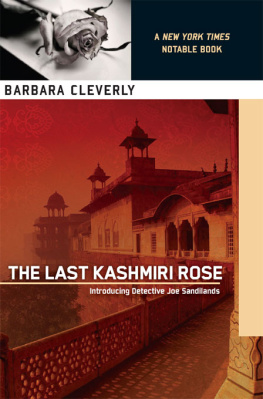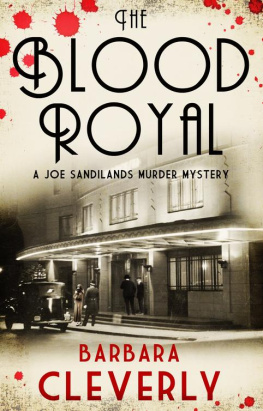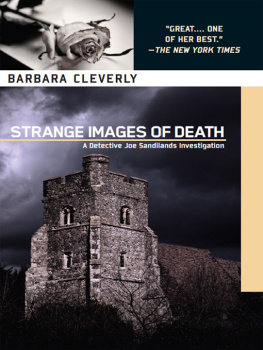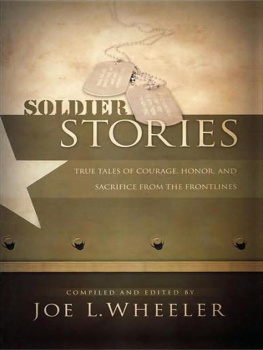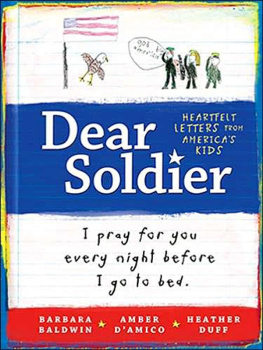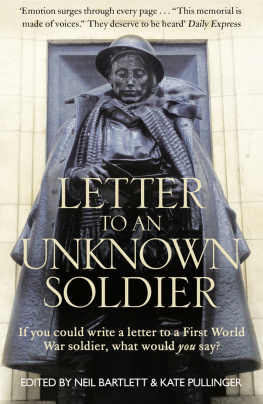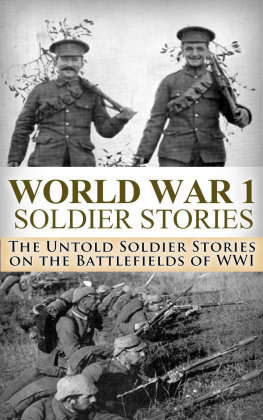B ARBARA C LEVERLY lives in the middle of Cambridge, surrounded by ancient buildings and bookshops. She was born and educated in the north of England at a Yorkshire grammar school and then at Durham University.
Barbara was inspired to write her first book, The Last Kashmiri Rose, following a successful outline sent to the Crime Writers Association/Sunday Times Debut Dagger Competition. A shortlisting and warm reception by the judging panel led to its writing in full. It was a New York Times Notable Book of 2002, and Barbara has gone on to write a further six Joe Sandilands novels.
Praise for Barbara Cleverly
The historical background of Barbara Cleverlys novel is as fascinating as the murder. Stiff upper lip soldiers, American heiresses, handsome Afghan tribesmen they are all here in spades. A great blood and guts blockbuster.
Guardian
A well-plotted novel... The atmosphere of the dying days of the Raj is colourfully captured.
Suasanna Yager, Sunday Telegraph
Spectacular and dashing. Spellbinding.
New York Times book review
Smashing... marvelously evoked.
Chicago Tribune
An historical mystery that has just about everything.
Denver Post
Maintains the high standards set by earlier Sandilands tales, blending a sophisticated whodunit with full-blooded characters and a revealing look at her chosen time and place.
Publishers Weekly (starred review)
Titles in this series
(listed in order)
The Last Kashmiri Rose
Ragtime in Simla
The Damascened Blade
The Palace Tiger
The Bees Kiss
Tug of War
Folly du Jour

Constable & Robinson Ltd
3 The Lanchesters
162 Fulham Palace Road
London W6 9ER
www.constablerobinson.com
First published in the UK by Constable, an imprint of Constable & Robinson Ltd, 2006
First paperback edition published by Robinson, an imprint of Constable & Robinson Ltd, 2008
Copyright Barbara Cleverly 2008
The right of Barbara Cleverly to be identified as the author of this work has been asserted by her in accordance with the Copyright, Designs and Patents Act, 1988
All rights reserved. This book is sold subject to the condition that it shall not, by way of trade or otherwise, be lent, re-sold, hired out or otherwise circulated in any form of binding or cover other than that in which it is published and without a similar condition including this condition being imposed on the subsequent purchaser.
A copy of the British Library Cataloguing in Publication Data is available from the British Library
ISBN 978-1-84529-431-1
eISBN 978-1-78033-406-6
Printed and bound in the EU
1 3 5 7 9 10 8 6 4 2
I have on my desk a tiny and very battered memento of the Great War a soldiers Active Service Testament. It is much thumbed and clumsily repaired with pink sewing thread. There is a bloodstain which I have followed through to its source on a loose page of Acts 14, and I wonder if this was the passage the unknown soldier who owned the book was reading when he was hit.
And saying, Sirs, why do ye these things?
We are also men of like passions with you and
preach unto you that ye should turn from these
Vanities unto the living God...
Who, in times past, suffered all nations
to walk in their own ways.
This story is dedicated to the memory of all those who fell in the struggle to ensure their nations could continue to walk in their own ways.
Barbara Cleverly, January 2006
Chapter One
Champagne, northern France, September 1915
Aline Houdart got off her bicycle and stood still, holding tightly to the handlebars. At this moment she needed to have her feet firmly on the ground and she fought down a ridiculous urge to take off her shoes, the better to connect herself to the earth. Surely she was mistaken? The sound shed heard was a tree crashing to the ground in the forest around her. Or thunder. A snap of her starched headdress in the breeze as she rounded the bend perhaps. The explanations she snatched at were elbowed away by a single word: cannon. But at such close quarters?
Aline thought at once of her parents. They would have been able to identify the make, calibre and direction of fire. Her parents knew all about cannon. In their distant youth theyd been trapped in Paris during the Prussian siege of 1870 and, round a good fire in the wintertime, they still vied with each other to convey the horrors of bombardment by von Moltkes fifty-ton siege gun. Aline tried to recall their lurid accounts of the hellish din with its earth-trembling accompaniment.
The sound came again. She got her bearings and, as she stood with her face to the north, the late afternoon sun over her left shoulder threw a shadow to the east and north in the direction of the blast. She stretched out an arm, extending the line, trying to remember what lay over there. The plain of Champagne, stretching for wide miles around Suippes and over to the bristling fortifications clustering around Verdun. She could deceive herself no longer. This was heavy artillery but were the guns French or German? Perhaps General Joffre had begun the longed-for offensive to clear von Blow out of Champagne, but at all events the war was coming closer. No longer static, bogged down in trenches, not even creeping up quietly but advancing openly, snarling, in leaps and bounds. Soon theyd hear its roar in the mountains to the south, one day perhaps in the hills of Provence. And by then her world would have been consumed, this perfect place reduced to rubble.
Shed been lucky in her choice of day last month when shed ventured north to look at the battlefield. It had been a quiet day at the front. Shed persuaded old Felix to get out the carriage and the one decrepit nag they had left in the stables and drive her up to the very edge of the high country overlooking the plain with Reims at its centre. Theyd found up there an ancient chapel which, unscathed so far, appeared to have enjoyed the protective sanctity of an even more ancient Celtic grove and, from its shelter, theyd stared out in silence, too shocked by what they saw to try to share their thoughts. The skylarks and wood doves had been making more of a clamour, she remembered, than the guns that day.
Framed by a canopy of beech leaves, under a hot August sky, the land of Champagne should have stretched out its smooth curves languorously, seductively, as it did in the coloured picture postcards. For nearly two thousand years it had been a bountiful vineyard. Vines planted by Roman soldiers had thrived, the land had prospered.
It had taken less than one year to bring the ordered countryside to this obscene state of devastation.
Arrogant pigs, like all armies, the Romans at least had understood the lands they had conquered; they had trodden lightly and worked hard, leaving behind fertile and civilized provinces. Unlike the present invaders. The chalky lines of their trenches tore hideous scars across the terrain, each countered by an allied trench but all advancing towards the centre where stood, blackened and firebombed, roofless, its towers still raising defiant fingers at the enemy, the mighty Gothic cathedral of Reims.
The trenches. Clovis was there. Not riding, lance at the port, across open country towards the enemy but, in this modern war, bogged down, hedged in, crouching in the sketchy protection of one of those scars. Shed blinked and stared at the distant battlefield swimming before her eyes. It was distorted, not by tears, but by a heat haze shimmering over the plain. She made an effort to concentrate her thoughts on her husband, to feel his discomfort. After all these months of battle, his uniform would be quite worn out. Blue captains jacket and red trousers it was designed for cavalry officers peacocking about on chargers a musical-comedy costume unsuitable for men wriggling on belly and elbows through mud and dust. And the steel helmet with horsehair plume dangling down his back what protection was that Napoleonic flourish against bursting shells and German snipers? In this heat the cuffs of his jacket would be chafing his wrists, his high collar would be too tight, his feet blistered.
Next page

